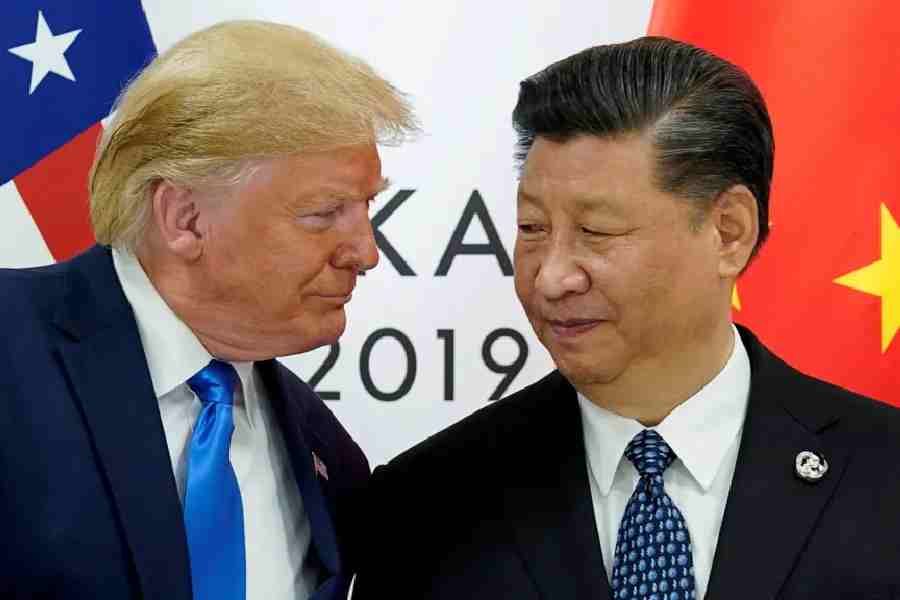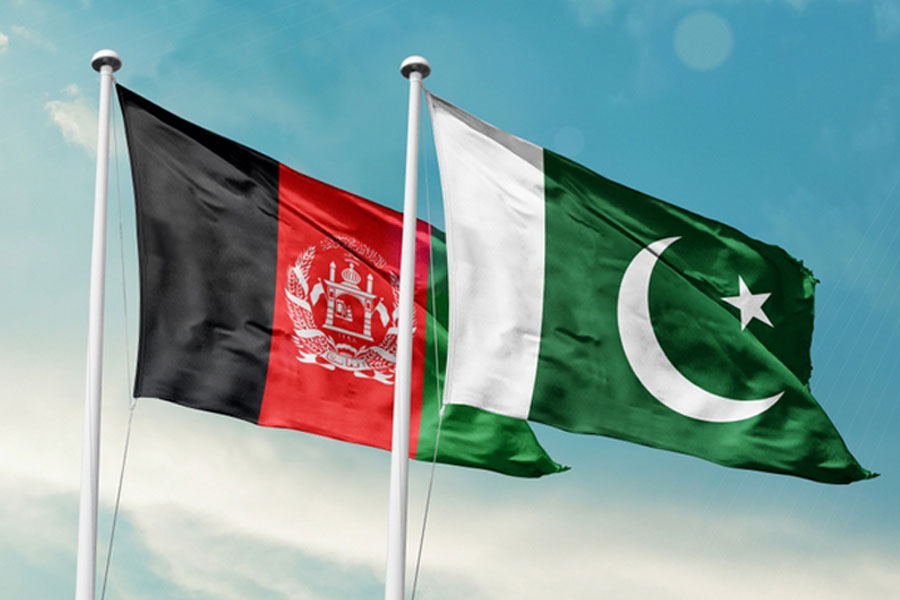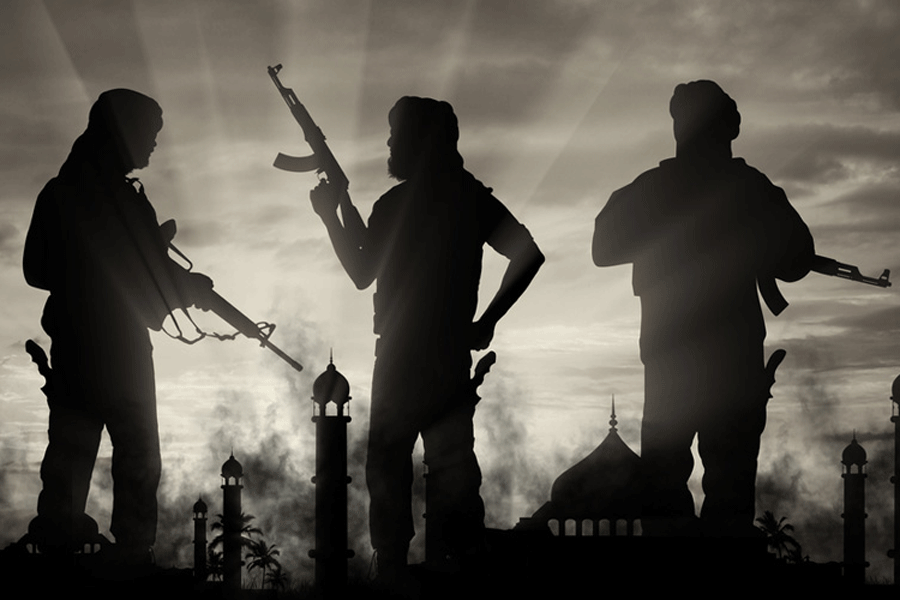|
|
The takeover of Iraq is the first step in the effective re-colonization of west Asia, only this time by the United States of America, with Britain playing the role of faithful batman. There are many things to be done in this regard, like ensuring long-term control of Iraq, subduing Iran, perhaps dividing up Saudi Arabia, reasserting Israeli influence in southern Lebanon and so on. But at the heart of this project is the resolution of the Palestine issue. Without this, the region cannot be stabilized.
Even before the assault began, Tony Blair and George W. Bush were talking of soon unveiling a roadmap for a peace settlement between Israel and the Palestinians. Sure enough, after the military victory in Baghdad, pressure was put on Syria, partly to dissuade it from opposing US plans to consolidate its control over Iraq but mainly because of the Palestine issue.
Syria is a key support-base for Hizbollah, Islamic Jihad and Hamas, which are among the leading forces organizing continued resistance to Israel in Lebanon and within the occupied territories. Syria is also the only major state in the region, which remains strongly hostile to Israel because of the latter’s unwillingness to give all of the Golan Heights back in return for a separate peace with Syria. Furthermore, the one major military-political defeat that Israel has ever suffered was in Lebanon when its troops finally had to pull out of the South because of the resistance of Shiites behind the Hizbollah. Again, the key force preventing Israel or the US from fully manipulating the Lebanese government is the power and influence of Syria within that country.
The new roadmap is meant only to get going the political process of “negotiating” a solution to the Palestine issue, since contrary to the original expectations of the US and Israel, the Oslo Accord process has completely collapsed. This roadmap is meant to clear the way for a “final settlement” that will give nominal independence or statehood to Palestine but will, in reality, mean the permanent economic, political and military subordination of the new state to Israel — that is, a final Bantustan-type solution of the issue.
To achieve this, it is necessary that a) Syria and the other Arab regimes be brought into line to give their endorsement to such a “solution”; b) Israeli and American power be even further institutionalized in the region so as to make any other outcome than this impossible or inconceivable; and c) the Palestinian leadership be coerced and persuaded to play its appointed role of chief Quisling.
With regard to the first condition, now that Iraq has been taken over, only Syria and to some extent Iran are a problem. The other regimes like Jordan, Saudi Arabia, Egypt and Lebanon are either so beholden to the US or so authoritarian and deeply unpopular that the last thing they want is a genuinely independent Palestine. This would mean the victory of the strong- est national-popular resistance anywhere in the world, effectively sounding the death-knell for their own governments because such a victory would greatly arouse the people of the whole of the Arab world with consequences very dangerous for these regimes. The second condition is also being fulfilled. As for the third condition, this is what the US and Israel are in the process of establishing.
The great tragedy of the Palestinian people, and their incredible struggle, is that few other national liberation movements have had to suffer as inept, corrupt and shameful a leadership. Yasser Arafat has an assured place in history as once the key symbolic expression of the independent emergence and continuity of a powerful Palestinian national liberation movement. But his crucial political degeneration took place after the end of the Cold War and the US victory in the first Gulf War of 1991 when he decided that he had no other choice but to decisively compromise on the goal of an honourable and just independence in favour of some kind of Bantustan-type resolution that would leave him and his cohorts as “internationally recognized” (that is, American-endorsed) leaders. He was supposed to see the Oslo Accords through to their final denouement.
The fundamental meaning of these accords was that, first, Arafat should trade in his most important political-diplomatic asset — recognition of Israel — not for an equivalent recognition of the right of Palestinians to an independent state, but only for the recognition of the PLO as the authentic representative of the Palestinian people. Second, the PLO, now re-christened as the Palestinian National Authority, would get some municipal-level powers of autonomy over limited parts of the occupied territories. Even the expansion of such municipal reach would depend on Israel’s agreement. Israel judges the “good behaviour” of the PNA and rewards or penalizes it accordingly. Israel would control water, security (complete military domination over the occupied territories) and all exit and entry points, and even public movement within the West Bank or between it and Gaza or Jerusalem.
Third, it was made clear informally that any “realistic” final settlement would allow most of the illegal Israeli settlements to remain. Therefore there could be no question of the new Palestine state either having contiguous territorial control or sovereignty, or getting back east Jerusalem or having an independent armed force (this would threaten Israeli security). Also, Israeli forces would remain in strategically designated positions within the new configuration; nor would Israel ever acknowledge its guilt for ethnic cleansing and robbery of the lands and properties of Palestinians in the 1948 exodus or for sustaining the longest illegal military occupation in modern history (since 1967); nor would it provide reparations for all these crimes.
In short, the new Palestine state could only enjoy limited sovereignty, and Israel would never admit the injustice it has done to the people of Palestine. This is not a recipe for lasting peace, which requires respect for the equal dignity of all and therefore acknowledgement of wrongdoing wheth- er by former colonial powers or the former upholders of apartheid or by Germany for Nazi brutality to Jews or by Israel to the Palestinians.
But the Oslo Accords collapsed despite Arafat’s commitment to making them work because in the final analysis, the Palestinian people refused to give in to a peace without genuine justice. The Oslo Accords’ failure made Arafat irrelevant to the US and Israel. With the regional and global relationship of forces shifting even more in their favour after this second Gulf War, a new Oslo-type process requires a new leadership of the PLO — Mahmoud Abbas — to push it through. Whether or not US or Israel succeeds in imposing a new settlement of “peace” without justice, remains to be seen. Most other governments outside the region such as in Europe, or governments like that of India, would be happy to wash their hands of, once and for all, over the Palestinian issue. An internationally acknowledged “resolution” of this problem would then leave such governments freer to deepen their relations with the US and Israel.
In the long run, even a Bantustan “solution” will not bring lasting peace precisely because it demands the permanent subordination of a people. But the US and Israel will be more than happy if it enhances their regional dominance over several decades. So the Palestinians stand alone, as they have had to for a long time now. Yet it is their heroic struggle against all odds that continues to create the single greatest weak spot in the US efforts to build a global empire.











